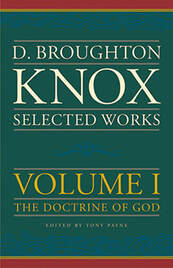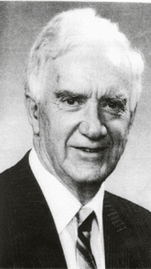How does anyone summarize the super-spectacular? Paul outlines the unquantifiable and corporate aspects of the gift of God’s grace announced so astoundingly in the gospel. He writes of and to a remarkable family that fulfills a remarkable purpose of eternal significance and he intimates also the location of the divine power that administers the manifold wisdom of God in the manifestation of the unsearchable riches of Christ in our approach to the Lord and our infinitely deep established companionship with him. Paul writes triumphantly to the people of God who by grace know him as Father. This is not a relationship of nature but of divine adoption and all the adopted ones are encouraged, through the Lord’s prayer, to call upon God as “our Father”. The Lord’s prayer is “the family prayer”, a way of access for the sons and daughters of the covenant. In him, Jesus our Lord, “we may approach God with freedom and confidence”.
Every believer is included within the church. We are to live, worship and extol Christ “together with all the saints”. We have, and should have, our personal relationship with Christ, but we identify and witness with with “the church” and we need to attain the healthy balance between the individual attachment to Christ, real and precious as it is, and our corporate connection with him through which the purpose of God in the world, and the shaming of the alien powers in opposition to the Lord, is effectually realized. Our modern emphasis on individualism [my way, my interests, my rights and importance] is bad ecclesiology [theology of the church]. God’s resources, his glorious riches, are provided in the family, of which many contemporary believers are deprived. Paul’s address certainly has relevance to the individual, but here Paul is speaking principally of the divine endowments bestowed upon the company and communion of God’s chosen ones. We are all obligated and indebted to the welfare of the family and to be complicit, co-operative, contributive towards its endeavors. This connection is not an extra to our Christian life but the summit of our fellowship in Christ. It is the body that serves him; not disconnected, isolated members who stand aloof. There are divine blessings especially reserved for the communion of saints, and special callings to function within that community of believers. We are to widen our concern way beyond ourselves. There are opportunities and restraints to exercise among the people of God - its assembly or congregation and expanded outreach. Like Paul, our preferred posture is to kneel before the Father as the Lord’s little ones - the least of all God’s people.
Paul’s prayer on behalf of the church is replete with superlatives in relation to the glorious riches that God may lavish upon his dear ones united in him. The dimensions of grace are immeasurable and the direction of grace is emphatically and specifically internal. God’s supreme work on behalf of humankind is, as one person has opined, “an inside job”: To “strengthen you with power through his Spirit in your inner being.” God’s aim is to penetrate to the inmost point of our personality; the exact, absolute center of our ourselves which even we cannot locate or comprehend. The crypt, or most hidden secret place as the New Testament Greek tells us [ Luke 11:33 - “a place where it will be hidden”]. The ultimate reality in Christian experience is Christ taking up residence in our hearts. Anything less than this, i.e. ritual, worship, action, profession, proclamation is futile. True Christianity is the life of God in the soul of man [Henry Scougal].
The power of the Spirit is to indwell the people of God in unison as one entity and operate through it by common faith. Rooted and established in the shared love of God believers are enabled to grasp the every-direction infinitude of the love of the Lord Jesus, as to how limitlessly high, deep, wide and long the love of Christ is, and as much as it is known in sublimest bliss it far surpasses exhaustive knowledge, so much so that the people of God might search its endlessness and only begin to be filled to capacity with all the measure of all the fullness of God that is ever increasing, yet set firmly set in the inner life of the redeemed. We come to know the immeasurable goodness of God through its efficacious donation in our past, its dominion over our lives in the present, and our prospective enjoyment of it in the world without end.
To be filled with the fullness of God is full of development for us as the favored children of the Father, the brethren of Christ, and those in constant fellowship with the Spirit. The excellence of Christ exceeds our holiest and strongest desires and outweighs our most cherished expectations.
Paul’s assurance is truth and promise in its most extravagantly actual form and expression: Now to him who is able to do immeasurably more than all we ask or imagine - the phenomenal features of divine deeds, wonders beyond compare, and the extraordinary future of the whole church in the kingdom of God are incredible to our minuscule minds. Why should our confidence in the Lord wane and our petitions before him falter? According to his power - God is omnipotent and his strength irresistible. How can we question his ability? - that is at work within us - from regeneration, to the struggle of our competing natures, old and new, to those things we venture unselfishly to his glory. Why should we tire and lose heart? His glory, distinct from worldly glory, will be shown in the changing fortunes of the church in the history of the church in every generation. And the story told of Christ’s salvation, power, protection and victory in the church will resound through all eternity.



 RSS Feed
RSS Feed
